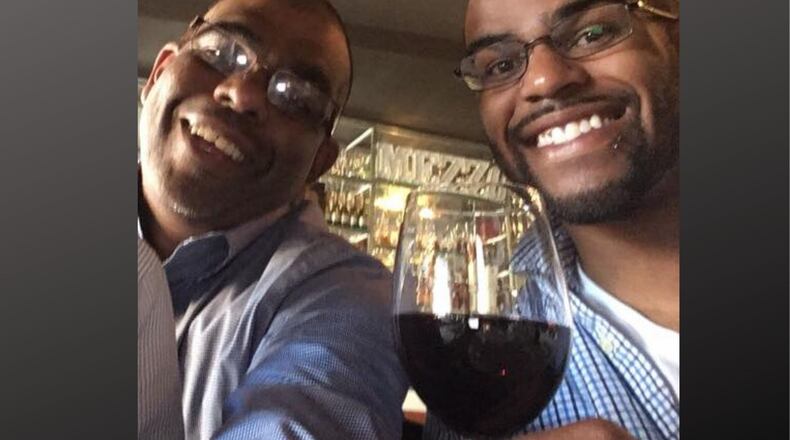My son is a few credits shy of graduating with a bachelor’s degree in biology. He was a terrific baseball player, batting leadoff for Kettering’s Fairmont High School for three years and playing at Sinclair Community College.
He did well until a shoulder injury ended his baseball career. He works hard ― he’s in the restaurant industry for now ― and takes the extra shift or the hours no one wants. He’s civic minded and volunteers with a local group that serves the developmentally disabled.
You might think his smarts, work ethic and heart mean he has a bright future.
Maybe.
But my son is black.
That sense of pride, at times, turns to a sense of worry. Black men in America today certainly face a better future than the ones of even my generation. Race relations continue to improve, but that can lead to a sense that things are OK and there are few disparities remaining. But these are the facts I think about:
- My son is twice as likely to be shot by a police officer than one of his white friends, according to a database kept by the Washington Post.
- He likes to wear hoodies and shorts, a dress code, one researcher said, that has become a stereotype for a criminal. Simply what we might wear, not who he is, puts him in danger.
- Over the course of his working career, he will likely earn far less, about $0.67 for every $1 a white colleague doing the same job makes, according to recent research compiled in the New York Times.
- If he decides to buy a house, he’ll face paying a higher interest rate or, if he has a house, higher refinance fees, according an analysis of nearly 7 million, 30-year mortgages.
- He may have to pay more money if he uses a ride-sharing service, which can cost more based on neighborhood.
- Black men have a far stronger chance of being racially profiled and have a higher likelihood of ending up in jail. Once there, they likely receive a prison sentence 10 percent longer than a white person who committed the same crime.
I don’t worry about him getting in trouble ― he never has ― but these stats enter my mind.
So are things better? Yes. Are the disparities gone? Only if you ignore the facts.
These are just a few of the many things I think about when it comes to a young man who, if all things are equal, should go very far in life.
But things are not quite equal.
I have a son. Do you see why I worry about him?
Ray Marcano, a former Dayton Daily News editor, is a media lecturer at Wright State. He’s the former national president of the Society of Professional Journalists, a two-time Pulitzer juror and a Fulbright fellow.
LETTER TO THE EDITOR
“A House divided against itself cannot stand” - Gloria J. Batty, Versailles
Our major political parties have devolved into divisive factions like hateful bickering siblings unable to agree or accomplish anything, losing sight of the fact that they have the enormous honor and responsibility of acting on the behalf of our nation’s multitude of citizens. Not to mention our nation was once a beacon of light for the world as to what a democracy could be.
Likewise, our postal system was the model for all the modern world’s postal systems. Certainly poor business decisions have been made. Human beings are imperfect by nature and will make mistakes. If the U.S. Postal Service needs money to fix what is wrong and get it in good working order again, give it to them. Our government and all its agencies are taxpayer-supported. These entities need to put aside all the infighting and disagreements and focus on the very important and necessary tasks at hand.
About the Author


